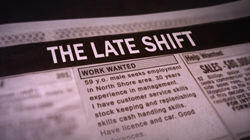Insight - Season 12 / Year 2017

Season 12 / Year 2017

Episodes

Game Changers

The Family Business

How is the dowry custom evolving in Australia?
Dowry practices are alive and well in Australia, not only in sections of the Indian community, but dowry or bride price is widespread amongst the African and Islamic communities too.
In Melbourne, South Sudanese man Chol Goch was proud to negotiate and pay a high price for his new wife Ajah Wuoi. Ajah grew up expecting a dowry and felt more respected by her community after she recently brought in the price of $70,000.
Salpha Dut, from the same community, has been working 11 hours a day, seven days a week for the past three years in Hobart to save up for his wife who is waiting for him to afford the dowry of 250 cows before her family will let her move to Australia. Despite the hardship, Salpha doesn't have a problem with paying for a wife.
But not everyone within the community is happy to accept the traditional way of doing things without challenging it. South Sudanese lawyer Nyadol Nyuon is against dowry and says it promotes gender imbalance. She'd like to see it abolished but she recently married and accepted her husband paying a large price for her to keep her family happy. She says this highlights the cultural clash within new communities in Australia as they negotiate old traditions in a new setting.
In Sydney, Sheron Sultan, a model from a South African background, asked her Austrian boyfriend Nick Toth to pay lobola, the bride price, as she wanted to uphold her culture and keep her ancestors and family happy. But the couple struggled with the concept of paying for a wife until they interpreted the tradition in a new way to make it their own.
Similarly in Brisbane, Naseema Mustapha personalised her Islamic dowry by requesting her husband-to-be Mohamed to buy and slaughter a goat to cook it and feed the poor. And we hear from a young Indian woman in Melbourne, Roopa, who describes how the dowry custom destroyed her arranged marriage.
This week on Insight we examine the future of dowry in Australia and hear the stories of new communities struggling with old traditions.

How is mental illness managed in the workplace?
Navigating the workplace with a mental illness can be challenging.
Do you tell your boss about an illness? If you do, how will they react? And, what happens if your mental illness might affect your ability to do the job?
Dave Westgate was hesitant to tell his boss out of concern his corporate career would be killed with kindness.
His feared reaction: "We won't put Dave on the next big pitch or whatever because it might be too much pressure for him."
For Carol Scherret, choosing to disclose her mental illness hasn't always helped her in the workplace.
"I'm either asked to leave, I leave because I'm sick … and some places have taken the opportunity when I'm off sick to restructure and then sort of say … 'there's no job for you anymore'."
John McCormack, a NSW paramedic, says he worried about his decision-making at work when he was struggling with a mental illness: "When I was at my worst, I would get complaints that I was rude and abrupt."
Mental illness can be difficult territory for employers too.
For small business owners like Alex Colls, the adjustments required to support people with a mental illness can negatively impact the bottom line.
"Absenteeism … crept up to about 50 per cent which hurt such a small team on such a regular basis."
And for others, like Andrew Campbell, it's about ensuring that employees in the construction industry are well enough to stay safe on the job.
"Because our industry is so high risk, you know, the last thing we want is someone that's not doing well that day and going to a high risk job and die because of it."
The prevalence of Australians living with a mental illness means that this is an issue that both employees and employers are increasingly dealing with.
An employee's mental health impacts business profit too. It's estimated that mental health conditions cost Australian workplaces $10.9 billion dollars each year. And for approximately every $1 a workplace spends on mental health, they'll see a $2.30 return on the investment.
This week Insight hears from employees and employers about how mental illness is being managed in the workplace. And asks, how can it be better managed?

How would you react in an emergency?

Episode 15

Episode 16

Gut Feeling

The Health Obsession
What happens when trying to be healthy becomes unhealthy? This week on Insight, we hear from people whose healthy habits have strayed into the dangerous territory of disordered eating. At what point did they tip over into being unhealthy? And how have they dealt with it?

Unresolved
Australia has around 1,800 long-term missing people. For their families and loved ones, the ambiguity surrounding their fate can be a living nightmare. This week on Insight: living with the unknown when someone you love goes missing.

Bouncing Back
Failure – we fret it, we shun it, and we question ourselves whenever it happens. This week on Insight: How do you rebound from failure?

Older Parents
How old is too old to have a child?

On Trial
What is the impact of working on criminal trials?

Wine O'clock
Why are women over 40 drinking more?

The Late Shift
Are we entering the age of no retirement?

Sexual Harassment
Where do women draw the line on sexual harassment in the workplace?

Stepkids
What's it like growing up in a stepfamily?

Intersex
Insight finds out how Intersex people navigate life and the medical system.

Tick Sick
How sick can you get from a tick?

Pushing the Limits
Insight explores what drives people to push their physical limits? What are the consequences?
Recently Updated Shows

NCIS
NCIS (Naval Criminal Investigative Service) is more than just an action drama. With liberal doses of humor, it's a show that focuses on the sometimes complex and always amusing dynamics of a team forced to work together in high-stress situations. Leroy Jethro Gibbs, a former Marine gunnery sergeant, whose skills as an investigator are unmatched, leads this troupe of colorful personalities. Rounding out the team are Anthony DiNozzo, an ex-homicide detective whose instincts in the field are unparalleled and whose quick wit and humorous take on life make him a team favorite; the youthful and energetic forensic specialist Abby Sciuto, a talented scientist whose sharp mind matches her Goth style and eclectic tastes; Caitlin Todd, an ex-Secret Service Agent; and Timothy McGee, an MIT graduate whose brilliance with computers far overshadows his insecurities in the field; Assisting the team is medical examiner Dr. Donald "Ducky" Mallard, who knows it all because he's seen it all, and he's not afraid to let you know. From murder and espionage to terrorism and stolen submarines, these special agents travel the globe to investigate all crimes with Navy or Marine Corps ties.

Landman
Set in the proverbial boomtowns of West Texas, Landman is a modern day tale of fortune seeking in the world of oil rigs. The series is an upstairs/downstairs story of roughnecks and wildcat billionaires fueling a boom so big, it's reshaping our climate, our economy and our geopolitics.

The Creep Tapes
Based on a collection of videotapes in the secret vault of the world's deadliest and most socially uncomfortable serial killer, who hires his victims to film him for the day under false pretenses, each episode exposes a new victim from one of the fabled 'Creep Tapes'.

America's Funniest Home Videos
ABC's longest-running primetime entertainment show, America's Funniest Home Videos, returns for season 36 this fall with the same mission -- giving families something genuinely funny to enjoy together on Sunday nights.
"AFV," the longest-running primetime entertainment show in ABC history, returns for season 36 with the same mission - to provide viewers with hysterical moments that fly by at a dizzying pace.

The Real Housewives of Potomac
Just up the river from our nation's capital lies a hidden gem—Potomac, Maryland. Its rolling hills, gated mansions, sophisticated prep schools, and exclusive country clubs all serve to keep the area invitation-only. Sprinkled throughout this community are a handful of old-line, wealthy African-American families who have historically broken racial barriers to provide a life of privilege for their children. The Real Housewives of Potomac follows the upscale lives of six intriguing, well-to-do women: Gizelle Bryant, Katie Rost, Karen Huger, Charrisse Jackson-Jordan, Robyn Dixon, and Ashley Darby, all of whom have fought for their places in this society by way of legacy or marriage. In a town where entry is granted only through class, pedigree, and lineage, how far will these ladies go to secure their spot at the top of this prestigious circle?